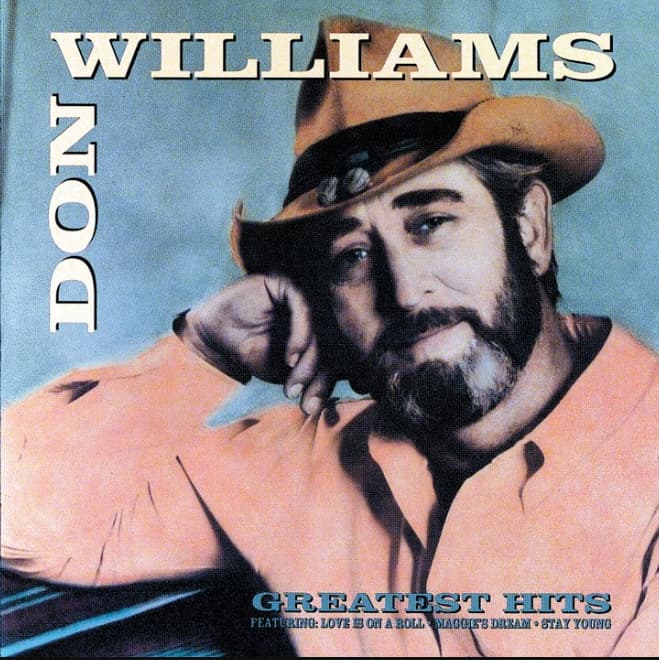
The quiet ache of an unfulfilled life, perfectly captured in a country ballad.
Ah, Don Williams… just the name conjures up that warm, reassuring baritone, a voice as smooth and comforting as aged whiskey. In a genre often filled with brash declarations and heartbreak played at a fever pitch, Don Williams, the “Gentle Giant,” offered a quiet, reflective wisdom. And perhaps no song better exemplifies this gentle, yet deeply moving style than his 1984 single, “Maggie’s Dream.” It’s a track that, when it drifted across the airwaves, spoke directly to anyone who ever felt the silent, persistent weight of a dream deferred, a life lived in comfortable routine rather than grand adventure.
Released in September of 1984 as the second single from his album Cafe Carolina, the song didn’t quite reach the top spot, but its resonance was undeniable. It peaked at Number 11 on the US country chart in November 1984. While a Top 10 hit might be the aspiration, for a song with such an unhurried tempo and introspective theme, reaching the cusp of the top tier proved its deep connection with the audience. This wasn’t a song designed for a Saturday night dance floor; it was a companion for a long, solitary drive, a quiet Tuesday afternoon, or a late night spent thinking.
The story behind “Maggie’s Dream” is a poignant vignette of quiet desperation, penned masterfully by songwriters Dave Loggins and Lisa Silver. The song paints a vivid picture of Maggie, a waitress at the fictional “Cafe Carolina,” a truck stop diner near the mountains of Asheville. She’s up before dawn, serving coffee and conversation to her “trucker friends,” a woman who seems content on the surface, living a life of predictable routine. But the narrative quickly peels back that layer of composure to reveal the hollow space within. We learn that “Maggie’s been a waitress here most all her life,” “closer now to fifty than to forty,” and has “never had a love.” The mountains around Asheville, those majestic, brooding peaks, become a powerful metaphor: she’s “never seen the other side.” Her world is bound by the diner’s walls and the steady, endless stream of the highway she watches.
The meaning of the song is nestled entirely in the lyric: “Aw but Maggie has a dream / She’s had since she was seventeen / To find a husband and be a wife.” It’s the universal longing for connection, for a shared life, a dream that time is slowly, mercilessly stealing away. Her only solace comes from the jukebox, playing “the saddest tunes” during the lonely afternoons. She internalizes the faraway tales of the truckers, who “take her in their stories to places far away,” only to leave her behind “with the dishes, dreams and quarters.” It’s a powerful, almost heartbreaking portrayal of a life lived on the periphery of others’ journeys. For older listeners, this song strikes a particularly powerful chord, prompting reflection on their own paths—the roads taken and, more acutely, the ones left untraveled. Don Williams always had an uncanny knack for selecting what he called “left field” songs—those tracks that were perhaps not commercially obvious, but possessed a profound truth. “Maggie’s Dream” is one such masterpiece, a quiet tribute to the unsung heartache found in the most ordinary lives. It’s a song that reminds us to look closer at the people serving us, working alongside us, for beneath the polite smile often lies a vast and yearning heart. It is the perfect blend of elegant simplicity and devastating emotional depth that defined Don Williams’ enduring legacy.